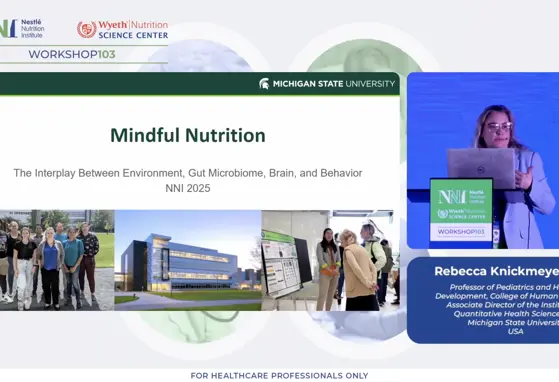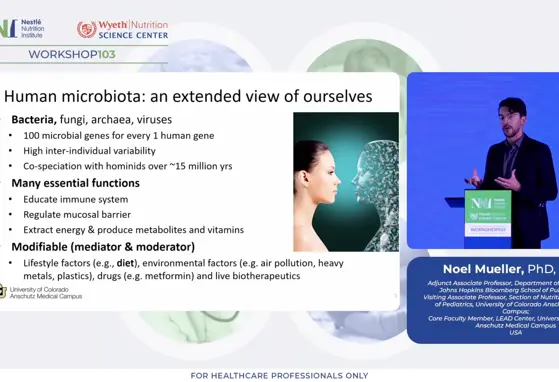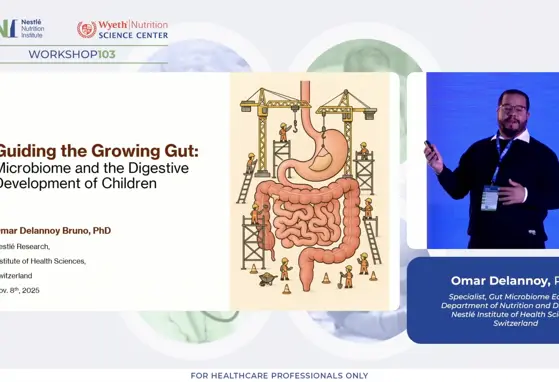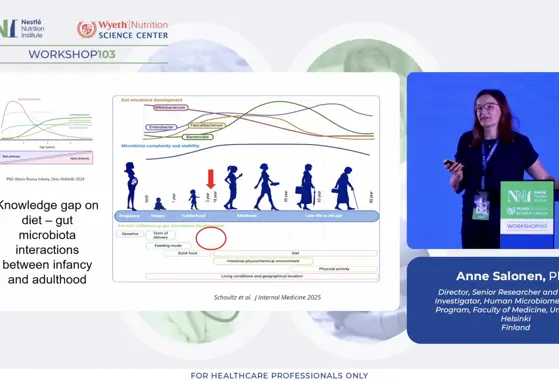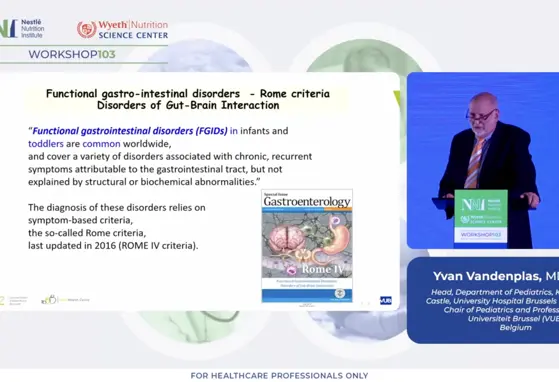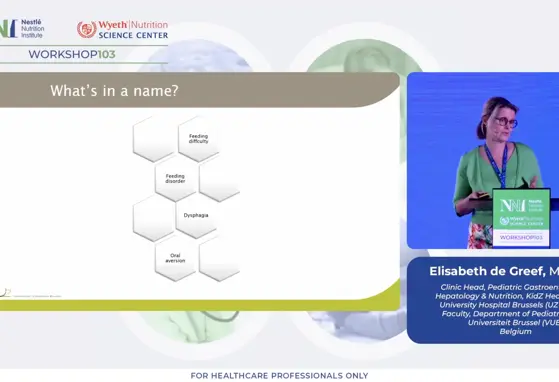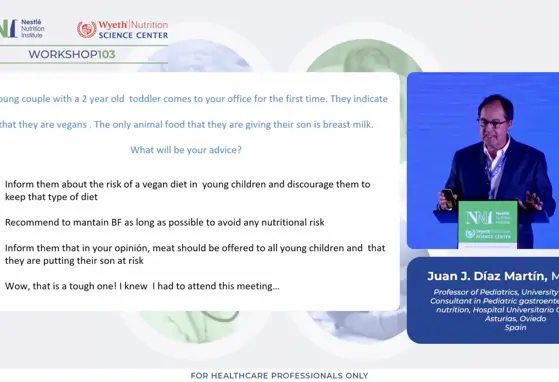Videos
Our nutrition videos are lectures recorded at global nutrition conferences and workshops, featuring leading experts addressing a wide range of key nutritional topics. The talks are free to Nestlé Nutrition Institute members, and cover all the most-discussed subjects in nutrition today.
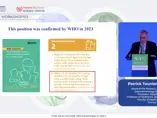
Young Child Formula: The Latest Recommendations & Practical Applications
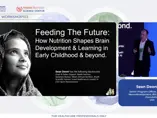
Feeding the Future: How Nutrition Shapes Brain Development and Learning in Early Childhood and Beyond

Learning to Eat: Exploring Food Texture, Taste, and Eating Behavior
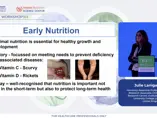
Addressing the Gap: From the Cradle to the Playground - Optimising Intake in Infants, Toddlers and Preschool Children
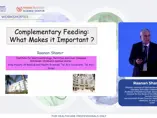
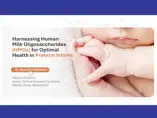
Harnessing HMOs for Optimal Health in Preterm Infants
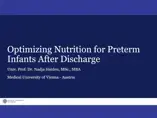
Optimizing Nutrition for Preterm Infants After Discharge
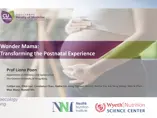
Wonder Mama: Transforming the Postnatal Experience
